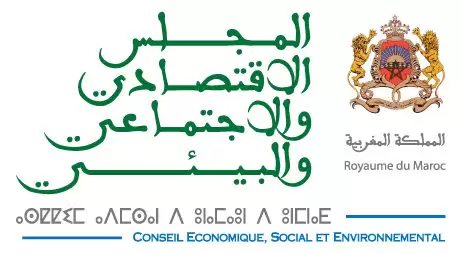
The CESE proposes four strategic areas of action, each encompassing a series of measures to modernize the overall land tenure situation in Morocco, with due focus on achieving and maintaining the right balance. The aim of this approach is to provide an effective response to the pressing need for access to secure land tenure, for land market regulation and for a better land information system (LIS).
Land tenure (in French, foncier) is key to economic development and a central component to reducing spatial disparities and promoting social justice. However, as the shortcomings in the enforcement of current legal and regulatory provisions related to the protection of property rights to land has come into stark relief, an increasingly growing feeling of inequity began to take hold among the wider population. This sentiment is also fueled by the often-observed speculative nature of investments in land and property and the weaknesses that impair the implementation of land tenure public policies, especially with respect to the requirements of economic, social and environmental development in our country.
The findings of the study by the CESE indicate that despite reforms and other initiatives in this area, there is still a need for a common strategic policy framework to be in place for the harmonization and effective coordination of land tenure-related public policies to be achieved. A further observation is that despite all the public efforts made to date, there are still major constraints on the overall synergy and convergence of relevant objectives and actions, particularly due to the multitude of actors operating in this field, the wide spectrum of legal land tenure systems and the lack of effective decentralized coordination mechanisms for land planning and management procedures.
Based on these observations, the CESE proposes four strategic areas of action, each encompassing a series of measures to modernize the overall land tenure situation in Morocco, with due focus on achieving and maintaining the right balance. The aim of this approach is to provide an effective response to the pressing need for access to secure land tenure, for land market regulation and for a better land information system (LIS).
In the first strategic area, the Council calls for urban spaces to be created which are free from all developmental constraints, attractive to profitable tourism and populated with adequate affordable housing. This can be achieved through:
Using land planning and management tools to produce land for the development of mid-standard housing, with a combination of incentive measures and rigorous monitoring and verification to ward off predatory land practices.
Using land consolidation in peri-urban areas, in accordance with transparent procedures guaranteeing access to information for all, to stimulate public intervention to accelerate transition to urbanization.
In the second strategic area, the Council advocates the development of agricultural and rural areas, with special attention to individually vested and collective rights to land. The proposed measures include:
Extending land tenure rights to be associated with the legal principle of peaceful parcel-based land possession or uninterrupted enjoyment, thereby adopting and authorizing the creation of a range of secondary land tenure rights (lease, transfer, exchange, etc.).
– Gradually regularizing residential land ownership in irregular settlements – first by upholding the right to residence under long-term renewable lease agreements, and then by recognizing the right to land use according to procedures to be defined.
The focus in the third strategic area is on putting in place a legal framework that establishes the rule for access to secure tenure, with due attention to the specific features and respective roles of each of the existing land tenure regimes. The proposed measures include:
Recognizing and protecting the various legitimately acquired land tenure rights that are not in conformity with the law (mutual agreement contracts for the transfer of land use rights; long-term land lease agreements; ‘tanazoul’ “Arabic for land use waiver agreement”, etc.), on the same basis as land tenure rights allowed by the law.
Consolidating and unifying the existing land tenure legal framework by establishing a “Land Tenure Code” (in French, Code Foncier) providing rules and procedures applicable to all forms of land tenure.
The fourth strategic area aims to establish effective land tenure governance at national level and in every region, with instruments that enable response to changes in demand. The proposed measures include:
Setting up, alongside the register on cadastral parcels, a national cadastre covering the entire country, by activating the relevant legal framework, while planning to develop a universal land register that handles all information and data necessary for effective and efficient governance of resource tenure.
Ensuring stronger coordination and synergy of land planning and management tools, by establishing a mechanism to be vested with wide-ranging powers.
Adopting a progressive land value tax (LVT) scheme that uses accessible and transparent land information to prevent speculative land markets, by levying a tax on non-wealth generating property.
A socially acceptable and growth-oriented land tenure policy reform in Morocco requires anticipating and overcoming potential resistances and encumbrances, both social and political, that hamper the smooth implementation of the country’s new land tenure strategy. It is also required to prioritize the implementation of the measures proposed hereinabove, focusing on “quick wins” and the priorities of institutional stakeholders, while adopting a long-term approach to make land tenure a priority and a real lever for development.





